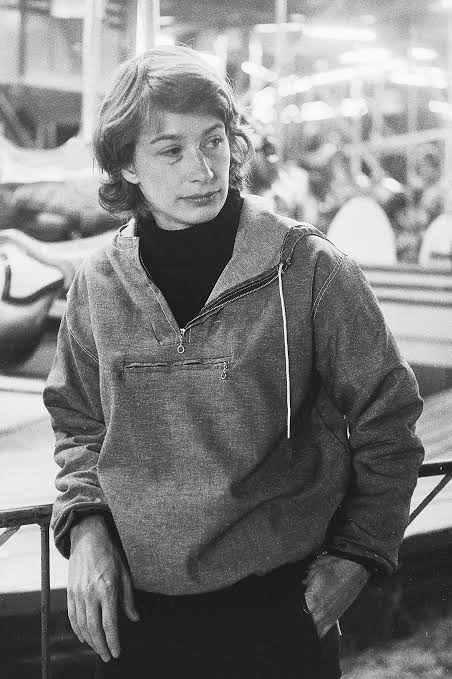Versiones y nota de David Vertty
Mary Oliver (1935–2019) fue una poeta estadounidense ganadora del Pulitzer de Poesía (1983) y el National Book Award (1992). En su poesía explora registros que van desde el nature-writing hasta la epifanía cotidiana y el estilo directo de su mentora Edna St. Vincent Millay. Los siguientes poemas forman parte de Felicity (2015), un canto a la naturaleza, al amor por la vida y por el otro.
¿Cómo te quiero?
¿Cómo te quiero?
De este modo y otro.
Feliz. ¿Debería
dejar de actuar como si
nada? Mostrarlo
de este modo y
este otro y
ya basta de palabras
How do I love you?
How do I love you?
Oh, this way and that way.
Oh, happily. Perhaps
I may elaborate by
demonstration? Like
this, and
like this and
no more words now
El primer día
En cuanto te fuiste
me puse a brincar y a brincar,
me puse a aplaudir,
me quedé viendo al vacío.
En esos días anhelaba la felicidad:
digamos entonces que fue tan estúpido como serio.
Digamos que fue el tibio, primer aguijón de la posibilidad.
Digamos que sentí el calor desparramado de la alegría.
The First Day
After you left
I jumped up and down,
I clapped my hands,
I started into space.
In those days I was starving for happiness.
So, say it was both silly and serious.
Say it was the first warm sting of possibility.
Say I sensed the spreading warmth of joy.
Conozco a alguien
Conozco a alguien que besa de la forma
en la que una flor se abre, pero más aprisa.
Las flores son bellas. Tienen
vidas cortas, beatíficas. Ofrecen
tanto placer. No hay
palabra contra ellas en este mundo.
¿No es triste que no puedan besar
más que al aire?
Sí, sí: ¡nosotros somos los suertudos!
I Know Someone
I know someone who kisses the way
a flower opens, but more rapidly.
Flowers are sweet. They gave
Short, beatific lives. They offer
much pleasure. There is
nothing in the world that can be said
against them.
Sad, isn’t it, that all they can kiss
is the air.
Yes, yes! We are the lucky ones.
En verdad pensé: vayamos lento con esto
En verdad pensé: vayamos lento con esto.
Esto es importante. Esto debería comportar
una buena y profunda meditación. Deberíamos dar
pasos pequeños, estudiados.
Pero qué bendición: no lo hicimos.
I Did Think, Let’s Go About This Slowly
I did think, let’s go about this slowly.
This is important. This should take
some really deep thought. We should take
small thoughtful steps.
But, bless us, we didn’t.
Esto y aquello
En esta danza de un nuevo amanecer —
los perros hacen piruetas en la playa,
los delfines hacen piruetas no tan lejos de la orilla —
alguien se inclina sobre mí,
me besa lentamente.
This and That
In this early dancing of a new day —
dogs leaping on the beach,
dolphins leaping not far from shore —
someone is bending over me,
is kissing me slowly.
Todo lo que estaba roto
Todo lo que estaba roto ha
olvidado su rotura. Ahora vivo
en una casa–cielo, cada
ventana atravesada por el sol. También por tu presencia.
Nuestras caricias, nuestras historias. Terrenales
y sagradas ambas. No sé cómo puede ser, pero
es así. Cada día tiene algo
en eso cuyo nombre es Siempre.
Everything That Was Broken
Everything that was broken has
forgotten its brokenness. I live
now in a sky–house, through every
window the son. Also your presence.
Our touching, out stories. Earthly
and holy both. How can this be, but
it is. Every day has something in
it whose name is Forever.
A excepción del cuerpo
A excepción del cuerpo
de alguien a quien amas,
con todas sus expresiones
en la intimidad y en público,
los árboles, pienso,
son la forma más bella
que hay en la tierra.
Aunque, francamente,
si se tratara de un concurso,
los árboles no obtendrían más
que un inmensamente lejano segundo lugar.
Except for the Body
Except for the body
of someone you love,
including all its expressions
in privacy and in public,
trees, I think,
are the most beautiful
forms on the earth.
Though, admittedly,
if this were a contest,
the trees would come in
an extremely distant second.
Nadie que afirme
Nadie que afirme “voy a ser listo,
cuidadoso en cuestiones del amor”,
que diga “voy a escoger lentamente”,
sino sólo aquellos amantes que de ningún modo escogieron,
que fueron más bien, si es posible, escogidos
por una fuerza invisible,
poderosa e incontrolable,
hermosa y posiblemente poco apta,
inconveniente —
sólo aquellos saben de lo que hablo
en esta charla sobre el amor.
Not Anyone Who Says
Not anyone who says, “I’m going to be
careful and smart in matters of love,”
who says, “I’m going to choose slowly,”
but only those lovers who didn’t choose at all
but were, as it were, chosen
by something invisible
and powerful and uncontrollable
and beautiful and possibly even
unsuitable —
only those know what I’m talking about
in this talking about love.
No quiero perder
No quiero perder ni un solo hilo
de este intricado tejido de felicidad.
Quiero recordarlo todo:
por eso estoy recostada, soñolienta
pero no tanto como para que me venza el sueño.
Recién, un momento de hace algunos años:
la luz del alba, el ágil, dulce
gesto de tu mano
buscándome.
I Don’t Want to Lose
I don’t want to lose a single thread
from the intricate brocade of this happiness.
I want to remember everything.
Which is why I’m lying awake, sleepy
but not sleepy enough to give it up.
Just now, a moment from years ago:
the early morning light, the deft, sweet
gesture of your hand
reaching for me.
Acabo de decirte
Acabo de decirte
una cosa
ridícula
y en respuesta
tu risa gloriosa.
Son éstos los días
en los que el sol
vuelve nadando
al este
y la luz resplandece
en el agua
—parece— como nunca antes.
No puedo recordar
cada primavera,
no puedo recordar
todo —
¡tantos años!
¿Son los besos de la mañana
los más dulces?
¿Los de las tardes?
¿Los del entremedio del día?
En cualquier caso
sólo sé que debería decir gracias
en alguna parte.
Por si no llegara
a encontrar
el lugar perfecto —
Gracias. Gracias.
I Have Just Said
I have just said
something
ridiculous to you
and in response,
your glorious laughter.
These are the days
the sun
is swimming back
to the east
and the light on the water
gleams
as never, it seems, before.
I can’t remember
every spring,
I can’t remember
everything—
so many years!
Are the morning kisses
the sweetest
or the evenings
or the inbetweens?
All I know
is that “thank you” should appear
somewhere.
So, just in case
I can’t find
the perfect place —
“Thank you, thank you.”

Autor
Mary Oliver
/ Maple Heights, Estados Unidos, 1935 - Hobe Sound, Estados Unidos, 2019. Poeta. Obtuvo el National Book Award y el Premio Pulitzer, ambos en la disciplina de poesía. Publicó más de 40 libros de poesía y ensayo literario, además de haber dado clases en las universidades de Bennington, Bucknell y Sweet Briar College, en Nueva Inglaterra.


